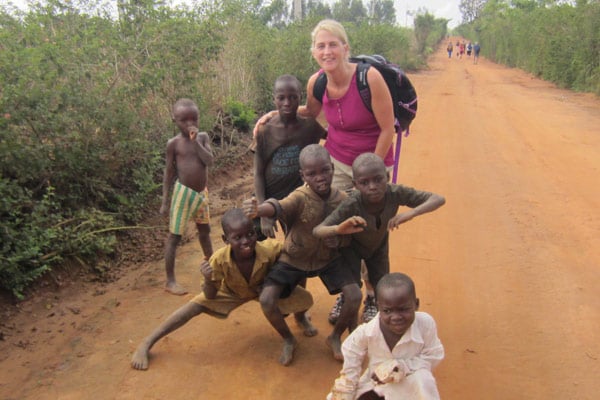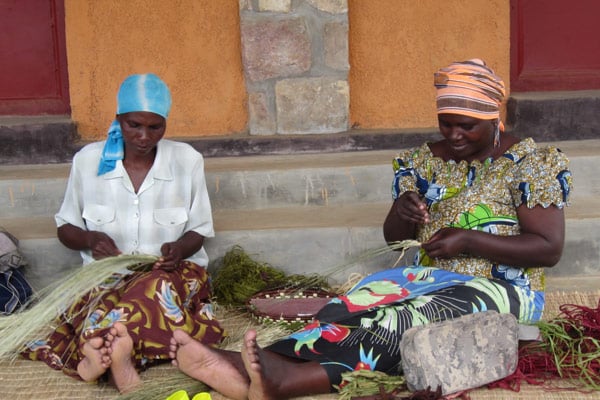Why did you decide to volunteer in Rwanda with DWC?
Kim: I had a dual desire to do some humanitarian work in Africa someday,but specifically Rwanda and the opportunity came up quite suddenly when I read the recruitment article in my local paper. Once I met with Jen Baillie, the team leader, and received time off from work, I was good to go! I had never before worked with DWC, but being a local organization and having led many trips previously, I felt it would be a good fit for me. I also liked the fact that the organization did not push a religious agenda, rather the focus was strictly on humanitarian work.

Describe your day to day activities as a volunteer.
Kim: Our day to day activities consisted of waking up, eating breakfast, walking to the worksite and then working on the various tasks required for building a kitchen at the Women's Covaga Centre. We mixed cemennt, levelled bricks, constructed brick walls, built stone pillars, carried rocks, etc. It was hard work, but we were all motivated to get such a great project finished for the local villagers. Some of the women and children helped by mixing and carrying cement for us, doing whatever they could to lessen our load.
After work, we walked back to our rooms, showered and then had dinner. Weekends were for sightseeing.
What made this experience unique and special?
Kim: This trip was special for me as I had always wanted to visit Rwanda after watching footage of the genocide in 1994 which had a strong impact on me. I felt that if I could go to Africa to help in any way, this would be country I would like to go to and I was thrilled when it turned out that way. Meeting the villagers, being part of a unique, well-travelled group was special, as was being able to see the gorillas, antoher life long dream of mine. I could also see firsthand how some relationships had formed between some DWC volunteers and some Rwandans from their previous trips. Seeing a nation that has suffered such horrific tragedy try to heal and focus on development, education, etc. I was really glad to be able to understand the direction they are trying to head and see success stories instead of just feeling the country is a giant morgue. It was a great experience.

How did this experience impact your future?
Kim: Returning home, I have been unable to stop thinking about my trip and ideally, I would continue to do humanitarian work. I do get summers off and could become a team leader, but I have young children, with no one to watch them, so this opportunity will likely not happen for many more years. What I was able to do, however, was link Lama Mugabo, Managing Director for Building Bridges Rwanda with the Horticulture departmet at Kwantlen where they can now hopefully create some sort of partnerhsip between BBR and Kwantlen students in the near future, working on plant, soil, nutrition projects.
I was also able to put people from DWC in touch with our Career Services Center and our International Students Department so that perhaps more partnerships can be created with Kwantlen and with DWC promoting humanitarian work with overseas learning and study. As a polytechnic university, Kwantlen needs to be looking at unique opportunities like these.